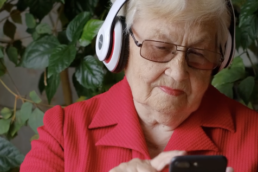When recalling post-operative pain, patients who have a negatively-biased recall of pain (i.e. recalled pain is worse than originally reported pain) are at greater risk for the development of chronic pain. In this study by UTCSP scientists, Joel Katz, Jennifer Stinson, and colleagues sought to identify risk factors that promote negatively-biased recall of post-surgical pain in children.
In this prospective study, the authors followed patients at several timepoints throughout their first year post-surgery and asked whether anxiety pre- and post-surgery in children was correlated with negatively-biased recall of their post-operative pain. Specifically, they assessed 3 forms of anxiety: pain anxiety (anxiety during, or in anticipation of, pain), anxiety sensitivity (sensitivity to the symptoms experienced with anxiety), and pain catastrophizing (helplessness or magnification of pain) and three aspects of their current and recalled pain intensity: pain at rest, pain during movement, and pain unpleasantness.
They found that a patient’s anxiety sensitivity and pain catastrophizing pre-surgery were predictive of negatively-biased pain memory at both 6 and 12 months post-surgery. However, the greatest predictor of negatively-biased memory of pain was catastrophizing pain immediately post-surgery (48-72 hours after), specifically, movement-evoked pain. Notably, this study is the first post-surgery pediatric pain memory study that distinguishes between pain at rest and movement-evoked pain. The authors also found that patients with greater negatively-biased recall of pain reported higher pain intensity at 6 and 12 months post-surgery, suggesting a possibility that current pain intensity can bias pain recall.
In summary, the results of this study identify pain catastrophizing during the acute recovery period (i.e., 48 and 72 hours after surgery) as a significant predictor of negatively-biased pain recall long-term (6 and 12 months after surgery). Thus, implementing therapies to reduce pain catastrophizing in patients during this critical period is important to reduce negatively-biased memory of pain, and in turn, hopefully reduce the risk of chronic pain development.
They found that a patient’s anxiety sensitivity and pain catastrophizing pre-surgery were predictive of negatively-biased pain memory at both 6 and 12 months post-surgery. However, the greatest predictor of negatively-biased memory of pain was catastrophizing pain immediately post-surgery (48-72 hours after), specifically, movement-evoked pain.

